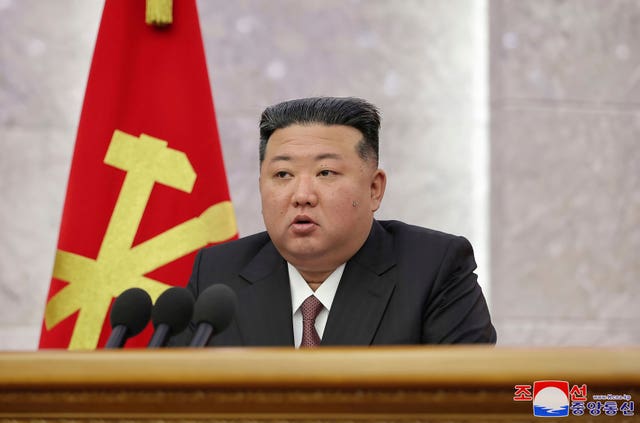
South Korea has said it will begin deploying laser weapons systems designed to intercept North Korean drones which have caused security concerns in the South in recent years.
South Korea’s Defence Acquisition Programme Administration said it will deploy at least one anti-air laser weapons system called Block-I by the end of the year and more in coming years.
An agency statement said Block-I is capable of launching precision attacks on small incoming drones and multi-copters. It said the system, developed by local company Hanwha Aerospace, costs just 2,000 won (about £1.10) per shot.
“We face North Korea on our doorstep and its drones pose present threats to us, so that’s why we’ve been aiming to build and deploy laser weapons soon to cope with them,” an agency official said.

He said other countries like the US and Israel are ahead of South Korea in laser weapons technology, but their primary focus has been on higher-powered laser guns that can shoot down incoming ballistic missiles.
South Korea also hopes to develop such anti-missile laser weapons, which its defence procurement agency called “a game changer” in future combat environments.
Block-I is meant to hit circuit boards and other equipment in enemy drones to make them malfunction and crash to the ground. Tests of the weapons system in 2022/23 were successful and proved its credibility, the official said.
Lee Illwoo, an expert with the Korea Defence Network in South Korea, expressed doubts about how effectively South Korea can use its laser weapons as its anti-air radar systems are not advanced enough to detect North Korean drones well.
He said the range of a laser weapon is relatively short, so high-power microwave weapons would be better when enemy drones are flown in large numbers simultaneously.
Jung Chang Wook, head of the Korea Defence Study Forum think tank in Seoul, said South Korea is likely to be about five years away from acquiring a functioning laser weapon that can shoot down the drones used by North Korea.
Pyongyang has periodically flown drones across its heavily fortified border with South Korea for several years, in what observers have called tests of South Korean readiness.
In December 2022, Seoul accused the North of sending drones across the border for the first time in five years. The South fired warning shots and launched fighter jets and helicopters but failed to shoot down any of the drones.
In a key political meeting in December 2023, North Korean leader Kim Jong Un vowed to introduce various types of unmanned combat equipment such as attack drones for 2024.
Foreign experts say he probably regards drones as a cheap yet effective method to trigger security jitters and an internal divide in South Korea.
Animosity between the two Koreas, split along the world’s most heavily fortified border, has deepened in recent months, with North Korea flying waste-carrying balloons towards the South in response to South Korean activists floating political leaflets on their own balloons.


Comments: Our rules
We want our comments to be a lively and valuable part of our community - a place where readers can debate and engage with the most important local issues. The ability to comment on our stories is a privilege, not a right, however, and that privilege may be withdrawn if it is abused or misused.
Please report any comments that break our rules.
Read the rules here